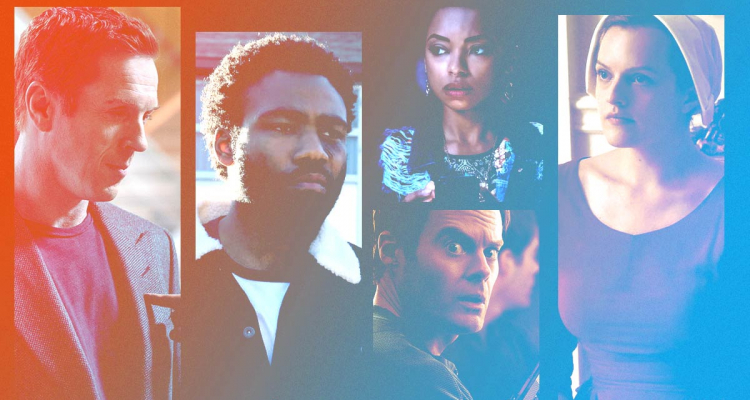 “Howard’s End”
“Howard’s End”
“Howard’s End” could have very easily stayed with the Merchant Ivory tone and aesthetic, but to our pleasant surprise Kenneth Lonergan’s four-episode miniseries is a crackling, colorful and engaging adaptation of what is often thought of a stuffy, restrained and quintessentially “British” story. The key to its success was tapping into the specific, yet universal themes of class, which are still very contemporary despite being set over a century ago; I foresee a well-deserved Emmy nod for Best Miniseries. The tricky, intricate webs both the individual and larger society weaves between class structures are examined with honesty and the cast compromising the three families who become intertwined is astounding across the board, from Matthew Macfadyen to Joseph Quinn to Philippa Coulthard, (and Alex Lawther sure is is having a banner year along with “The End of the F**king World”) and grounded by the luminous Hayley Atwell as Margaret Schlegel. – EM
 “Killing Eve”
“Killing Eve”
In a year overflowing with a larger-than-usual bounty of British television imports, “Killing Eve” hit a home run with the dynamite performances from leads Sandra Oh and Jodie Comer, the steady growth of ratings in a time when week-to-week linear growth are an increasingly rare phenomenon, and sharp, incisive and funny writing that cemented Phoebe Waller-Bridge as an unstoppable creative powerhouse. From froofy ballgowns to microwaved shepherds pie to Eve and Villanelle’s final truce before everything goes to hell, the addictive BBC America series sears iconic moments in one’s mind, while also forcing us as the audience to examine how we view women, anti-heroes and anti-heroines in television. In “Killing Eve” women are deliberate forces of nature (for better or worse), (refreshingly) ungirded by trauma or tragic backstory – they are whom society should be prepared to face; ignore them at your peril. – EM
 “Westworld”
“Westworld”
For anyone looking for a similarly action-packed and emotionally bombastic (and yes, a touch cheesy) series to fill the spot left too often by HBO juggernaut “Game Of Thrones” then, well, “Westworld” would’ve seemed like the obvious choice. It was decadently designed with an expansive world that continued to build and an all-star cast in its arsenal. And yet, season one left something to be desired in the after effect and months passed as we realized that it was difficult to remember anything that really happened beyond isolated cliffhanger moments. Season two does a lot to rectify the first seasons problems, making it less about the ethos and mystery of the world and more about exploration. Thandie Newton’s Maeve continues to be given deserved spotlight while James Marsden and Evan Rachel Wood are given more agency that makes them nearly as fascinating as their supporting counterpart (though the former continues to be frustrating slept on.) Patience is a virtue, as our critic noted in their review, saying “the show’s move to sacrifice baser impulses for a more finely-honed plot and characters is one many will likely endorse.” With the inclusion of Samurai World, a more coherent narrative, less exploitative plot teasers and an air of confidence, “Westworld” is continually hitting back at expectations. – Ally Johnson
 “Barry”
“Barry”
Watching “Barry” is something like enduring a sympathy panic attack. At least, that’s what watching episode seven of the premiere season was like as you’re left as shaken and discomforted as the lead character, having seeped up all of that restless energy. “Loud, Fast, and Keep Going” was a master class in all of the minute details that go into expert character building and it’s a testament to the show that while this half hour was the clear highlight, the remaining of the series did much to catch up. Paula Newsome, Henry Winkler, and Anthony Carrigan should all get some awards love for their varying performances that either added immense, gleeful levity to the proceedings or a sense of deep melancholy and the writing and direction is expert – particularly one brilliant episode directed by mastermind Hiro Murai. However, this is Bill Hader’s show and there is a vehement argument to be made that without him it wouldn’t have worked at all with our critic calling him “…effective in the wordless moments; the scene where Barry first discovers that acting might be his calling is particularly powerful.” – AJ

